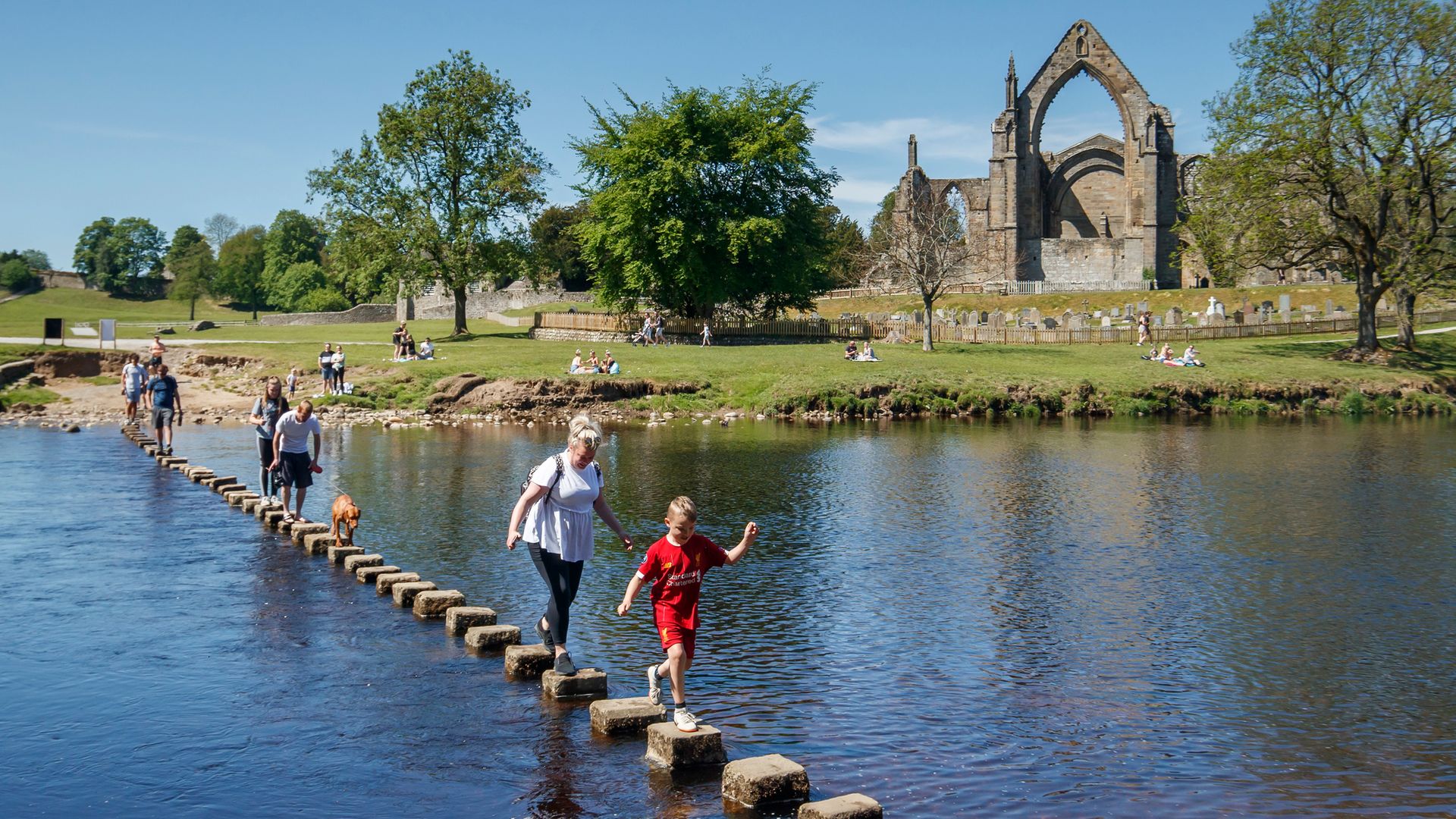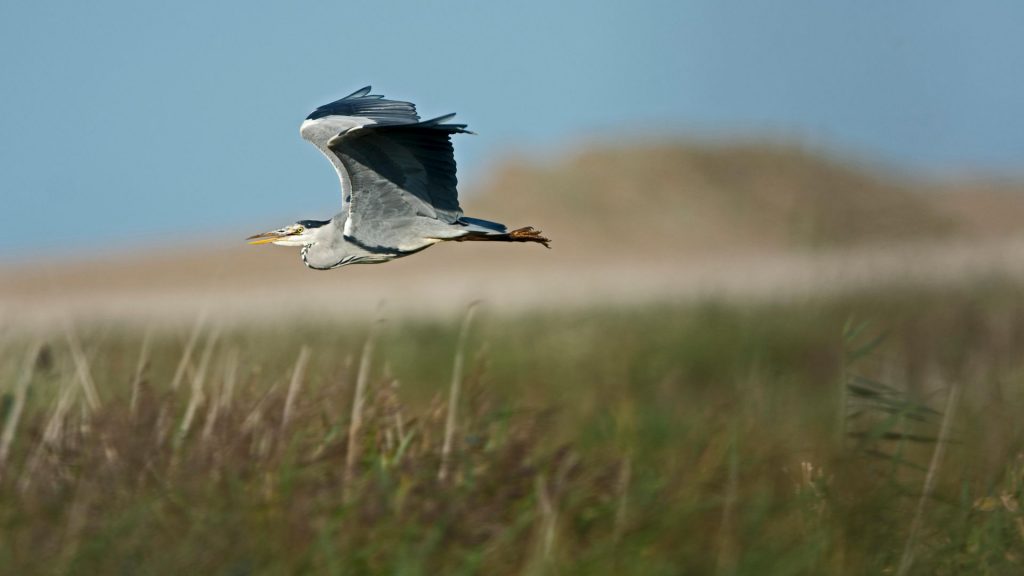
Starting last spring, the pandemic has generated a passion for wildlife in many. A year on, as an easing of restrictions and return to normality finally nears, we must not lose the connection we’ve made with nature.
It was the loveliest spring in living memory. Or perhaps it just seemed that way, because so many people actually noticed it. I mean, really noticed it: not just as an opportunity to lose the jacket and take an outside table, but to feel the marvelousness in their bones.
In the first Lockdown Spring people noticed butterflies as if they were the first butterflies that ever took wing. In the unaccustomed silences they heard blackbirds whistling down from the chimney pots, making music that no one had ever heard before. In a quite unprecedented fashion, leaves grew on trees while daffodils leapt from the earth and blew their own trumpets.
It was nature-watching on the Good Ship Venus principle: there was nothing else to do. But people soon discovered that it wasn’t just a second-rate substitute for the lost busyness of normal times. It was a revelation. The doors of perception had been cleansed.
They felt like blind people receiving the gift of sight; and like deaf people receiving the gift of hearing, for that matter. How could we have lived so long without knowing what kind of song a robin sings; how come we never noticed that hawthorns blossom in May; why did we never know that there were deer in suburbia?
I wrote a book full of tips for getting closer to nature; it was published in 2018 and performed respectably. Two years later it was suddenly doing better than ever, against all the traditional patterns. This was deeply gratifying, and not just for the obvious reason. People were getting through these hard times by looking at nature: they were learning how to look for reptiles, identify birds by their song and give a name to butterflies, and they were doing so with the help of my book.
Now, as the second Lockdown Spring gets into its stride, there are hopes, with vaccinations and the long hard disciplines we have all been forced to learn, that things are on the mend at last: that the healing of harms can begin. We can begin to contemplate such heady possibilities as visiting family, laughing with friends and going to the pub. As we do so there is an important message to take on.
Don’t lose it now.
First off, this is a message for everyone who found a deeper love of nature over the past year, those whose commitment is fresh and vigorous: don’t get swept away with a new round of charging about and looking important. Don’t see the lifting of restrictions as a return to normality: for once in our lives we have a chance to establish a new and better normality, taking in the good things we learned from bad times.
On March 14, 2020, I attended a meeting of about 100 people in Saxmundham Market Hall in Suffolk. I stayed in the local pub; I had supper with an old friend; the next day I met some good people and saw more old friends. I talked and I laughed. I also delivered a speech. I talked about how good nature is: “Minsmere is not just a nice nature reserve,” I said. It’s a place where extinct birds came back and danced. That’s not poetry, that’s scientific fact.”
It was a strange day. No one was quite sure how serious this pandemic business was, but never mind, it’ll all be over in a few weeks. We greeted each other with awkward waves and grins rather than hugs and handshakes, but we sat next to each other. It was still – ridiculous when you look back – ten days before Boris Johnson began the process for the full lockdown.
If this meeting and the attendant awkwardness seem like quaint tales from a lost golden age, the reasons for the gathering still stand. There were then and there still are plans to build a vast nuclear power plant right on the edge of the one of the most important nature reserves in the country, bang in the middle of one of the loveliest stretches of countryside that we have.

But it’s not just about Minsmere: it’s also about the principle that drives this nuclear project. It’s the idea that nature – even in the exalted form that you get on the Suffolk coast, a place beloved and visited by millions – is expendable. It’s a luxury. It’s something that interests only a few cranks. Politically speaking, trashing nature is as safe an option as you can get.
Two nuclear power plants have already been built at Sizewell, one already decommissioned. This new project would change everything. Sizewell C would be twice as big as A and B put together, comprising two power stations to be built at an estimated cost of £14 billion. The construction process will last a good ten years; it’s been estimated that this will involve deliveries from 1,500 lorries every day.
Over the last year people have turned to nature in millions as a relief from the troubles of the world. There are few better ways of doing so: the wild world makes good times better and bad times less bad, as we all know from experience and as a thousand pieces of research have made clear. But if you turn to nature you will also find new troubles. Nature needs saving on a daily basis.
I live in Norfolk, on the edge of the Broads. The other day, looking out over a neighbouring stretch of marshland, I saw, emerging from a dyke, the snaky neck of a heron. But then, as the light changed, I could see that the neck was white and the beak yellow. The bird stepped into a full view: tall as a heron but white as a cloud, as elegant a bird as there is anywhere in the world: a great white egret. The British Trust for Ornithology says with alarming precision that 72 of them winter in this country. This bird was not only beautiful, it provided a rather classy birding moment.
The more you look, the more often such moments can be yours. But gardens and parks are glorious enough, especially in spring: the first yellow flash of a brimstone butterfly, the lush song of a blackcap, the signs left overnight by a passing hedgehog.
Those of us who got through lockdown with the help of bees, butterflies and birdsong should remember, as restrictions ease, that like dogs and Christmas, nature is not just for lockdown, Once found it’s something you have with you all your life. It doesn’t matter where you live: I have seen peregrine falcons in the heart of London, terns in the middle of Middlesbrough and little gulls in Liverpool. If you have found the faith, keep it.
Don’t lose it now.
But loss is something all nature-lovers must learn to cope with. Around 90.000 people visit Minsmere every pandemic-free year, looking for the avocets and mash harriers, both birds that were once extinct in this country. In spring the marsh harriers go in for spectacular aerial displays called skydancing. Are we really going to trash it?
The HS2 train service will cut nearly half an hour from the trip between London and Birmingham before going on to Leeds and Manchester. One government review puts the likely cost at £107 billion. It’s being built on the premise that business travellers care about a few minutes of time, when all they actually want is first-class Wi-Fi and a comfy seat. HS2 will destroy or irreparably damage five internationally protected wildlife sites, 693 local wildlife sites, 108 ancient woodlands and 33 Sites of Special Scientific Interest, a designation that is supposed to confer legal protection.
I could find many more examples, but let’s leave it there. Just accept that nature is on the run as never before, and that taking delight in nature will bring you sadness as well as joy.
The current government has vowed to be the greenest ever – don’t they all? With the departure from the European Union the government has put together a draft policy statement about the measures they will introduce to replace previous European legislation. It’s already soft. The proposed Environment Bill puts forward no obligations: just requirement to play “due regard” to environmental policy. Due regard! That’ll have potential transgressors trembling in their boots. Under the bill there’s to be a new Office for Environmental Protection. The snag it is it will have no power. It must follow “guidance” – i.e. instruction – from the secretary of state.
Sorry, sorry, sorry. These are all deeply boring political things, not nearly as much fun as marsh harriers and great white egrets and brimstones. But if we don’t respond to them – by, say, joining your local Wildlife Trust (and yes, there is one for London) — there won’t be any marsh harriers etc.
It would be a fine thing if the people who found nature in lockdown stuck with it and helped to shove the environment to the forefront of the political agenda, where it should be. It’s a much-ignored fact that we all live in the environment.
Politicians think they can do what they like with the environment because deep down, nobody cares. But lockdown has forced us all to look deep down. Many more people have found that they really do care. Is there a possibility that this spike of nature-lovers might make a voice loud enough for politicians to hear and the fear? This country has 40 million fewer birds in it than it did in 1970; 70% of all butterfly species are declining. We need to hang on to what’s left: for its own sake, for the sake of our own sanity.
Don’t lose it now.
Wildlife in lockdown
Among the stars of the first lockdown were the goats who made their way down from their north Wales clifftop homes into the otherwise empty streets of Llandudno and made headlines around the globe.
But they were not the only creatures to make the most of the reduction in human activity.
The Bosphorus is normally one of the world’s busiest maritime routes, criss-crossed by vessels 24 hours a day. But a lull in traffic and fisherman staying home resulted in dolphins swimming in the area.
While reports of dolphins swimming in the usually congested waterways of Venice turned out to be fake, the local wildlife and water quality did benefit from the shutdown in La Serenissima.
In the Israeli city of Haifa, meanwhile, wild boar flooded the empty streets, prompting concerned officials to hold Zoom meetings to discuss the expanding population.
More alarming were several cougars found wandering the streets of Santiago, Chile, including one inside an apartment block. The animals were captured and released back in their natural habitats.
In Albania, pink flamingos flourished in coastal lagoons, where numbers increased by a third to 3,000. Nearby olive oil and leather processing factories that have been accused of polluting the waters were closed, and the traffic that usually congested a road 500m away was absent, creating quiet for the birds.
In Thailand, a herd of 30 dugongs, known as sea cows, was caught on camera swimming in the Hat Chao Mai National Park where tourism had ground to a halt.
Europe’s pigeons, however, fared worse. An animal rights group in Germany warned many birds faced starvation because the humans who normally feed them or drop morsels of food on the streets were stuck at home. In Krakow, Poland, one animal welfare organisation came out specially to feed the flocks.
What do you think? Have your say on this and more by emailing letters@theneweuropean.co.uk
Warning: Illegal string offset 'link_id' in /mnt/storage/stage/www/wp-includes/bookmark.php on line 357
Notice: Trying to get property 'link_id' of non-object in /mnt/storage/stage/www/wp-includes/bookmark.php on line 37






